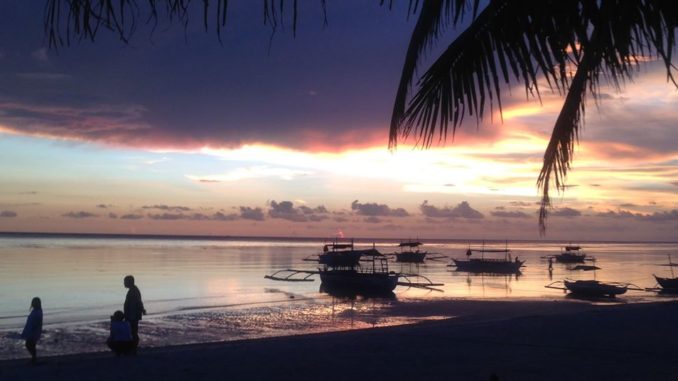
By Arine Garin, Staff Reporter
The Philippines is known for its magnificent beaches and crystal blue waters, but, hidden in this facade, is also a developing country filled with economic hardships. In the slums, people live in poverty, relying on daily wages to get by, and with the growing number of COVID-19 cases, it imposes troubling times to low-income households, students and small business owners.
The situation has caused some stress in the Filipino community at Amarillo College, according to some students.
“Ever since this whole COVID-19 thing happened, I can’t help but worry about my family back in the Philippines, especially knowing there’s a lot of cases of the virus close to where all my relatives live,” Marc Pamplona, mass media major, said.
The president of the Philippines, Rodrigo Duterte, first announced a lockdown on the northern region of the Philippines Luzon back in March lasting until April 30 in order to slow the spread of the coronavirus.
According to the data provided by the Department of Health of the Philippines, the Philippines had recorded 446 deaths from COVID-19, and 6,710 confirmed cases as of April 22.
As a consequence of the lockdown, unemployment is on the rise and causing much demand for assistance from the government in finances, food aid and the need of medical supplies and equipment for healthcare workers.
In a desperate situation, a rally erupted at the beginning of April in which protesters voiced their anger over the shortcomings and claimed that they have not received any food aid since the lockdown began.
To this, Duterte threatened violators.
“I will not hesitate my soldiers to shoot you. I will not hesitate to order the police to detain you. Now, if you are detained, I will leave it up to you to find food,” he said.
Things will get worse before they get better.
Marc Pamplona, mass media major
According to Karl Jamandre, a college student at La Consolacion College in Manila, this was a good reminder to the rest of the country to take this situation seriously. While the virus is mainly affecting the northern region of the country, it is testing the country’s capability in handling this pandemic.
“If the human rights were violated, it would only result in more tension, unrest and increasing the amount of protest. However, the bottom line is the president has the right to discipline its people provided that it is for their very own safety,” Jamandre said.
Pamplona said he didn’t think the rally was necessary but understood the frustration.
“Given they were promised to be given relief goods and other items and then didn’t get them, of course they have the right to be mad,” he said, “But my take here is that the rally won’t really resolve anything. In fact, it might worsen things a bit more, given the president’s known attitude.”
On the other hand, Ira Elupre, a student of Heritage Academy and ACE Learning Center in Ho Chi Minh City, Vietnam, stated that the president’s announcement shows little sympathy to the citizens.
“The president referred to the people as troublemakers who cause violence and trouble. When peoples’ lives are at stake on these kinds of occasions, they shouldn’t be labeled as troublemakers, they are people who lost their jobs and need financial support,” Elupre said.
Authorities such as Philippine National Police chief Police General Archie Gamboa were quick to respond to Duterte’s remarks.
“Probably the president just overemphasized on implementing the law in this time of crisis … We see the strong message and all the PNP personnel understood that they were not actually being instructed to kill troublemakers,” Gamboa said.
Recently, authorities extended the lockdown on Luzon to May 15.
“Due to the lockdown extension, I think people are going to be more frustrated given that the president doesn’t show any sympathy to his nation nor to anything to keep the people calm,” Pamplona said. “Things will get worse before they get better.”
All things considered, the Philippines adversity provides an opportunity to learn from and to show continuous support to those who are in health disparity.

Leave a Reply